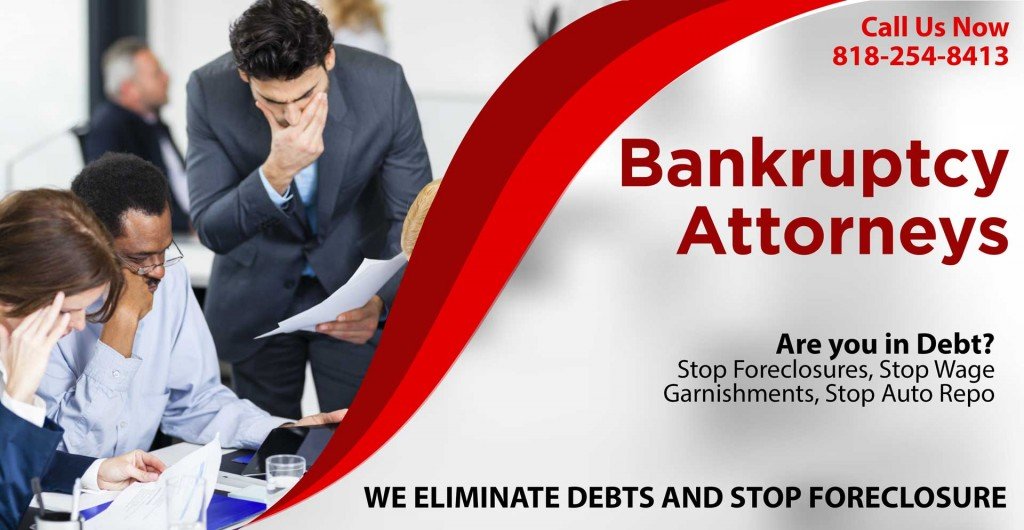 In short, filing chapter 13 bankruptcy will stop foreclosure on your home. If you are facing foreclosure on your home and are behind on the mortgage, filing a chapter 13 bankruptcy will stop the foreclosure and give you time to make the payments. Chapter 13 will also help you save other assets that you have including your car.
In short, filing chapter 13 bankruptcy will stop foreclosure on your home. If you are facing foreclosure on your home and are behind on the mortgage, filing a chapter 13 bankruptcy will stop the foreclosure and give you time to make the payments. Chapter 13 will also help you save other assets that you have including your car.

Can I Stop Foreclosure with Chapter 13 Bankruptcy?
Chapter 13 bankruptcy is a powerful tool that allows consumers to save assets, such as houses and cars, while also getting relief from debt collectors. Chapter 13 bankruptcy can:
- stop foreclosure and
- allow you to keep your home.
It can provide you with relief from debt collection while you pay back your debts over time. In California, a decent house can cost many times more than a house in other states, especially in Los Angeles. If you suddenly find yourself out of a job, it may be impossible to keep up with the mortgage payments.
If you are delinquent on your mortgage, you can usually roll the delinquency into the Chapter 13 payment plan, paying the delinquency over a longer period.

 How Do You Stop a Foreclosure Sale Immediately?
How Do You Stop a Foreclosure Sale Immediately?
Have you received a foreclosure notice from the mortgage lender that a foreclosure auction date has been set? If the bank is planning to sell your property because you are delinquent, there are still things that you can do to save your home—even if you have already received a foreclosure auction notice.
One of the surest ways to immediately stop a foreclosure—even days before the auction—is to file a Chapter 13 bankruptcy. Bankruptcy is a legal proceeding that helps consumers pay back debts and get relief from debt collection. During a bankruptcy, an automatic stay is immediately issued. This stay prevents the bank from continuing with foreclosure proceedings even if they have already begun the foreclosure process.
How Long Does It Take For a Mortgage lender to Start Foreclosure?
The length of time that it takes a bank to start a foreclosure depends on the bank. Although most mortgage contracts state that a borrower is in default after just a single missed payment, most banks do not send the foreclosure notice and initiate foreclosure proceedings until you are at least three months late.
Once the foreclosure process begins, you might have anywhere from one month to a year or more before the bank finally sells your home at an auction. During this time, you do have options to stop the foreclosure and save your home.
The best plan of action is to speak with an experienced foreclosure attorney. They can review your specific case and tell you what your best options are for your particular situation.
How Many Months Can You Miss Your Mortgage Payments Before a Foreclosure Sale?
If you are unable to pay your mortgage because of a medical crisis, job loss, or another unexpected event, you might be wondering how many months you can miss on your mortgage payment before the bank forecloses.
Depending on which state you live in and your lender’s particular policies regarding delinquencies, you may be able to miss your payments for three to five months before formal foreclosure proceedings are started.
You will get an official notice from your lender in the mail, called a Notice of Default, telling you that you are in violation of your mortgage contract and at risk of foreclosure. This is the first step in the foreclosure process.
If you have received a Notice of Default from your lender, now is the time to talk to a foreclosure attorney. They can advise you of your options and help you save your home.
What Can You Do When Your House has a Foreclosure Sale Scheduled?
If you are facing the prospect of foreclosure, you are not alone. If your house is in foreclosure, try not to panic and create a game plan. Don’t rely on a real estate agent to solve the problem, call an experienced lawyer to get sound legal advice. Your best advocate is a lawyer in your corner to make sure that you stop the sale and stay in your home.

 Can you make up missed mortgage payments to avoid a Foreclosure Sale?
Can you make up missed mortgage payments to avoid a Foreclosure Sale?
What is your monthly income? Can you afford your mortgage payment? Do you want to stay in it?
If the answer is yes, filing bankruptcy is a good option to stop foreclosure and start making up missed payments in a repayment plan. Filing Chapter 13 bankruptcy creates an automatic stay as soon as it is filed, which means the foreclosure will be stopped immediately.
If the answer is no, because the mortgage payment is too high, you have some options to keep you out of foreclosure temporarily, including Chapter 7 bankruptcy, which could help you avoid foreclosure and lessen the blow of losing your home by eliminating your debt and giving you time to sell the house. By filing a Chapter 7 bankruptcy, you can get a fresh start and find a home that you can afford without the burden of high mortgage payments weighing you down.
When should you talk to a Chapter 13 Bankruptcy attorney?
If you want to keep your home – You may want to call a chapter 13 bankruptcy attorney to see if you qualify to file bankruptcy.
If you qualify to file Chapter 13, you will be able to keep your assets, including your home and car and savings [up to a limit]. During a Chapter 13 bankruptcy, you will be able to pay your delinquency over time and eventually catch up on your mortgage.
How can you get free legal advice from a Chapter 13 Bankruptcy Lawyer?
If you are not sure what the right option is for you, talk to an experienced foreclosure attorney. They can help you weigh the pros and cons of your choices. Talk to our experienced chapter 13 bankruptcy Attorney for free advice today. Our law firm has years of Bankruptcy law experience and we offer a free evaluation for anyone that needs to file for bankruptcy relief.
How does filing Chapter 13 Bankruptcy work?
Chapter 13 is a process where you file for bankruptcy in a bankruptcy court to automatically stop a foreclosure sale date; this is called an automatic stay and it happens the minute the bankruptcy petition is filed. Once filed, you enter into a repayment plan to repay your mortgage arrears and your unsecured debt is wiped out. The amount of debt relief depends on your total monthly income and the amount you will repay to the secured creditor is decided by the bankruptcy judge. The estimated value and fair market value of the home are compared to the total debt owed to the mortgage creditor to calculate equity.
Our bankruptcy attorney makes sure to comply with the bankruptcy code so that your bankruptcy case ends up with an effective bankruptcy discharge. We have years of experience with Bankruptcy law, and we offer a free evaluation for anyone that needs to file for bankruptcy relief. Talk to our bankruptcy lawyer today to make sure you get the help you need.
What is a Reinstatement Quote?
If you have received a foreclosure notice from your bank, one of your options is to reinstate your loan. This will allow you to avoid foreclosure without paying your mortgage in full. Although this is an option if you want to stay in your home, most people who are already struggling have difficulty coming up with the cash needed to reinstate the loan, which often includes additional fees.
To find out how much you would need to pay to reinstate your loan, talk to your mortgage company. They will provide you with a reinstatement quote. This quote will likely include the amount of payment that you are behind and any additional costs that are associated with the foreclosure. After you have paid this amount, you would then continue to pay your regular mortgage payments.
What is the Process of a Foreclosure?
When you default or fall behind on your mortgage payments, the process of foreclosure begins. Foreclosure allows the mortgage company to recover the amount owed on the mortgage by taking possession of your home and auctioning it off. The proceeds from the sale and then used to pay the mortgage. If your home does not sell for the amount of the mortgage, you will still be responsible for paying the mortgage company the difference that is left over.
The first thing that a lender must do to initiate the foreclosure process is to send you a Notice of Default. This notice indicates how much you are in default and what amount must be paid to bring the loan current. You are then given a short period to pay what you owe, or the bank will continue on the road towards foreclosure.
How long the foreclosure takes depends on your state laws and your lender’s internal foreclosure policy. It could take anywhere from 30 days from the Notice of Default to months before your home is sold at an auction.
We have years of experience with Bankruptcy law, and we offer a free evaluation for anyone that needs to file for bankruptcy relief. Call us today and talk to a bankruptcy lawyer for free legal advice: 818-254-8413.









